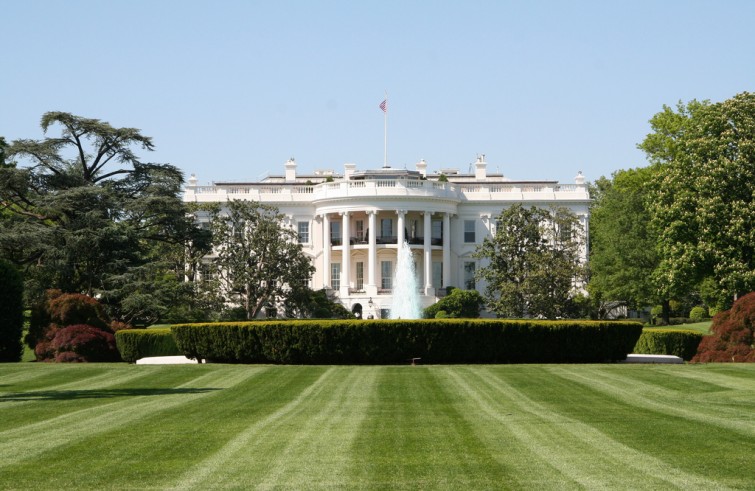
While the victory of Democrat Joe Biden is on the horizon, the US elections are casting some serious doubts on the electoral system as well as on the “quality” of its democracy. SIR addressed this issue with Gianluca Pastori, Professor of History of Political Relations between North America and Europe at the Political and Social Sciences Faculty of the Università Cattolica in Milan, Italy.
 Professor, will we soon know who won the US Presidential election?
Professor, will we soon know who won the US Presidential election?
I believe we will. A likely victory of Biden is expected sometime soon: as we speak he already has 264 electoral votes out of 270 needed to win the White House. For the Democratic opponent it would be enough to win Nevada, with 6 electoral votes, or Georgia, with 16. However Donald Trump already announced he would contest a loss in Georgia in court.
Let’s talk about these legal challenges. Is it normal for a President to question election results?
Observers noted that Trump repeatedly raised doubts about postal voting, suggesting systematic fraud, stating that honest citizens are being deprived of their right to vote, and he went so far as to say that he was willing to settle US election result in the Supreme Court. Regardless of the feasibility of this goal (which cannot be taken for granted), the incumbent President is questioning the rules of the game, which destabilizes. Also in Florida’s 2000 presidential election between George W. Bush and Al Gore the latter requested a recount. However, it complied with electoral system regulations. In fact, Al Gore eventually accepted the result. Trump is going too far and that’s where the danger lies. Indeed, the next president could be considered, at least by a part of the American population, as illegitimate, thereby leading to questioning the very foundations of American democracy. Moreover, some might think – if they don’t believe it, why should we?
On the eve of voting, the most reliable polls gave Biden a lead close to 6% of the popular vote. But the vote counting show a different outcome. What happened? What mistakes did the Democratic candidate make? Or is Trump creditable for the partial comeback?
Perhaps, and quite simply, what we are seeing is that the polls were inaccurate. Let me explain. In the 2016 election, Hillary Clinton was given a 2-3% lead over Trump in the popular vote, and in fact that was the result. Election forecasters had detected the general trend, but they failed to situate those votes in terms of territorial distribution across the 50 single States, and hence the resulting assignment of electoral votes.
In short, the opinion polls were accurate… and yet incorrect. Something similar is happening today.
On the one hand we see a tendency in Trump’s voters not to expose themselves by declaring their vote, on the other, pollsters find it hard to determine the territorial distribution of votes. For example, Pennsylvania was believed to be a Democratic stronghold, but this doesn’t seem to be the case and, in any case, Biden’s eventual victory will come after a struggle than is tougher than expected. In my opinion national polls failed to maintain the granularity to make the kind of state-by-state predictions. But there is also another factor.
Which is…?
It could rightly be said that the polls are unable to identify the electoral choices of minority groups, whose votes carry considerable weight. Now, thinking outside the box, who can tell how Hispanics vote? More importantly, which Hispanics? Those picking cotton on Texas plantations or those with good economic and professional status in a big city? Basically, the polls do not capture the social mobility of minorities and therefore not even their “political mobility.”
In any case, what emerges is a divided nation, split in two…
The United States is a strongly polarized country. At the political level it started after the Twin Towers collapsed, followed by the war in Iraq, the financial crisis of 2007… Even Obama’s election and presidency fuelled major divisions, which Trump used to build his political career, to become president and now to attempt to remain in the White House. The Covid-19 pandemic is currently heavily affecting the U.S.: it’ s a severe, albeit “contingent” crisis.
In the long run, however, the ongoing clash over American identity is a cause for concern.
Racial protests are an indicator of this. However, we should remember the strong mobilization characterizing the history of the United States, collective memory. Recently destroyed symbols, including the statue of Christopher Columbus, are signals to this effect that should not be overlooked. Trump and Biden appear to be engaged not in a political contest, but rather in a different interpretation of their American identity. We should all be concerned about this. As I see it, the U.S. is experiencing a Western problem, involving our lifestyle, our way of conceiving, describing and identifying ourselves.
Is democracy also at stake in the United States?
Democracy is a “problematic” political system nonetheless, insofar as it constantly requires new balances, marked by systemic challenges. It must respond to efficiency while adhering to the rules mutually agreed upon. We could go so far as to say that so-called illiberal democracies have an easier life, but de facto they question the very notion and value of democracy. What can we learn from the experiences of China, Russia, Turkey? What challenges do they pose? Some might ask whether it is worthwhile for us to uphold democracy. My answer is certainly yes. Democracy remains the best possible way to ensure freedom and rights, even though not everything is completely peaceful and predictable.










